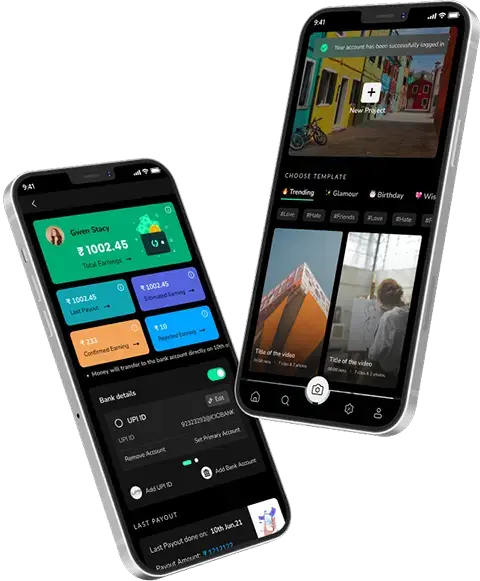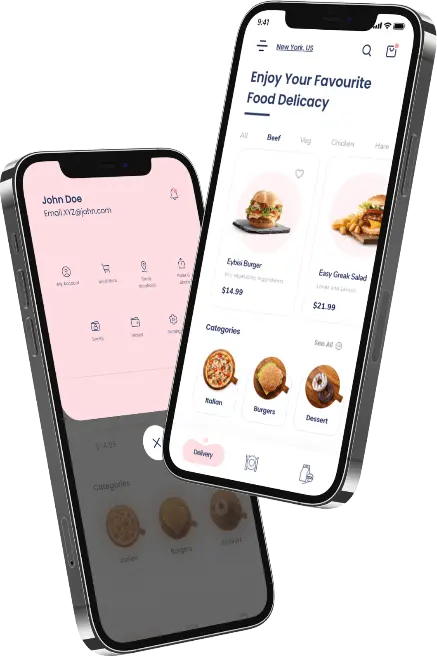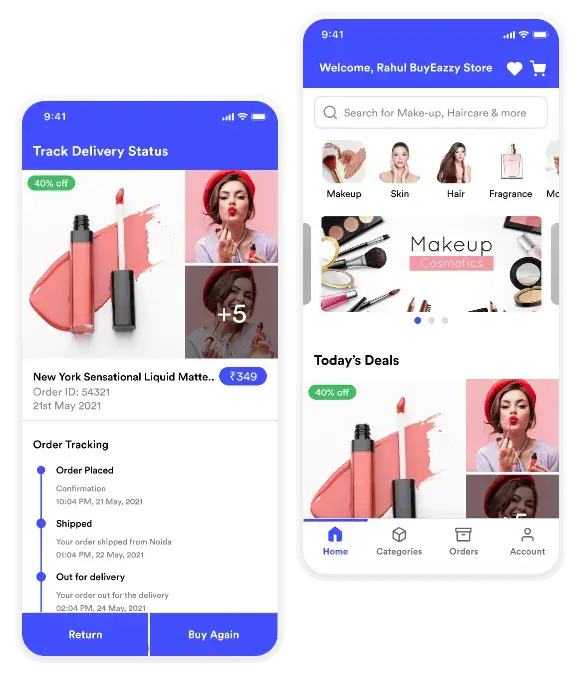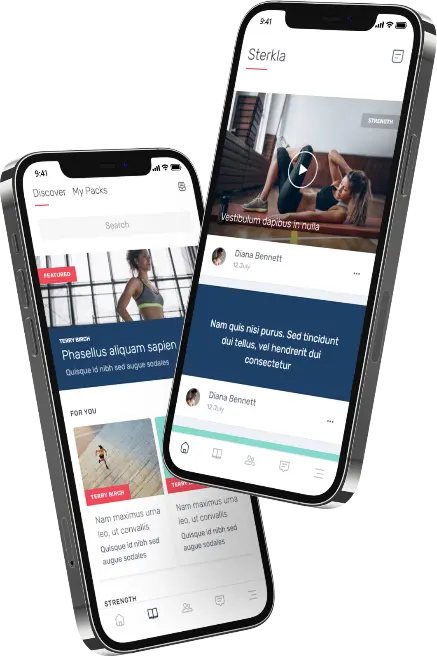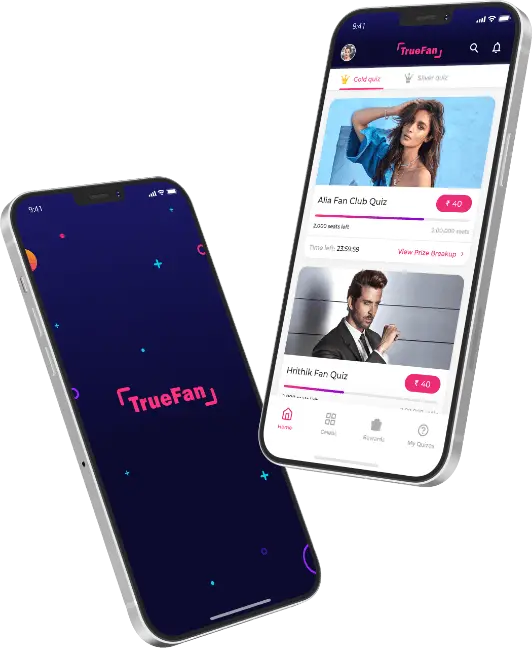The food and beverage industry is a highly dynamic and growing industry. Technology like the Internet of Things can create significant value for companies that distribute, provide, and market food and beverages. In the context of food and drink, the Internet of Things (IoT) is an idea that’s usually thought of in the context of a consumer. The emphasis is on smart fridges that can place orders for grocery items on demand and smart heating systems that manage HVAC control remotely.

The beverage industry is undergoing significant changes through Internet of Things (IoT) solutions and services, developed by IOT App Development Company. There’s no doubt that through the use of IoT technology, the food and beverage industry can reach its full potential. IoT aids companies in achieving the highest quality levels of food safety. It also helps increase traceability, reduce the amount of waste, and lower risk and costs across diverse food processing and packaging phases.
One of the primary purposes of the F&B business is to provide premium-quality food items for the consumer at a reasonable price. This depends on how the food is prepared before placing it in the basket. The beverage industry exemplifies this exceptionally well. Here is a brief overview of some ideas that are making waves and why they will be so revolutionary.
Also Read : IOT in Logistics and Supply Chain Role Benifits and Use Cases

Understanding The IoT In The Beverage Industry
The IoT in the beverage sector uses advanced technology, including artificial intelligence, machine learning,, cloud computing, and data analytics. These tools simplify internal processes, streamline tasks, and analyze information to understand consumers’ behavior and preferences. As a result, businesses can make informed choices that lead to greater efficiency, improved customer service, and the launch of innovative new offerings.
Also Read : The Impect and Future of Machine Learning in Healthcare Applications Benifits and Challenges
1. Automation And Robotics
One of the main sectors where IoT can make a huge impact on the food and beverage industry is through the web application of robotics and automation. These technologies are becoming more widespread as they improve procedures, cut costs, and improve effectiveness.
Automated systems package products, scan them, transport items, and cook food. In addition, robotics automates mundane jobs like sorting ingredients and inspecting foods. By incorporating automation and robotics into their processes, businesses will be able to achieve greater productivity and improve the allocation of resources.
2. Artificial Intelligence
By leveraging artificial intelligence, AI App Development Company is also changing how businesses interact with their customers within the beverage and food industry. Chatbots powered by AI, for instance, could respond promptly and efficiently, resulting in better customer service and increased interaction. This results in greater customer loyalty as well as increased sales.
3. Internet Of Things
IoT technology is essential in surveillance and tracking within the beverage and food industry. Monitoring processes in real-time can lead to more efficient processes and improved traceability, which ensures businesses can comply with food safety rules.
Also Read : How to Develop and IOT Application Feature Benefits and More?
Businesses can use IoT devices to observe variables like humidity, temperature, and hygiene. This provides immediate information on food safety, allows for early identification of any potential issues, delays possible damage, and ensures the best quality of food items.
4. Blockchain Technology
IoT can also make a huge impact on the food and beverage industry with the help of blockchain tech. Blockchain technology allows monitoring of the sources of food ingredients, making sure that customers have access to nutritious and safe foods.
Blockchain technology monitors the entire production chain from the farm to the store aisles, providing an encrypted audit trail with details about every ingredient. This is particularly helpful for those with diet restrictions or allergies who require the assurance that their food products are secure and not manipulated. Blockchain technology guarantees transparency, confidence, and accountability for the food and beverage sector.
5. Augmented Reality
Augmented Reality (AR) is becoming commonplace in the food and drink industry to offer customers more incredible experiences. AR can provide interactive demonstrations of products and virtual tours of production installations.
The tech allows businesses to provide immersive experiences to consumers, allowing them to engage with their products in a stimulating and enjoyable way. By incorporating AR into their marketing plans, firms can boost the brand’s visibility and increase customer satisfaction.
Also Read : The Impect of Augmented Reality AR in Marketing Boosting Consumer Engagement
6. Mobile Apps And Online Ordering
Online ordering and mobile apps are becoming essential for growth in the food and drink business. They allow consumers to make orders swiftly and efficiently, making it much easier for companies to fulfill their requirements.
Mobile apps also offer targeted offers and sales, increasing customers’ sales and ensuring loyalty. By using mobile apps and online shopping, businesses are able to keep ahead of their competitors and satisfy the ever-growing need for seamless and convenient user experiences.

How Can IoT Help The Efficiency Of Your Beverage Business?
The Internet of Things is a sensor-based latest technology that permits the beverage industry to have greater visibility into manufacturing, production, and the whole production chain. Production processes in this industry are currently shifting towards digitization to boost growth. This helps manage customers’ demand with ease and quick administration, which promotes competition between companies.
For those in the food and beverage industry, it is essential to ensure the safety of food products. IoT is cutting-edge technology offering innovative solutions for overcoming these issues and assisting the authorities in outsourcing top-quality items. It is also a way to ensure that produced products comply with FSMA (Food Safe Modernization Act) guidelines to confirm the authenticity of products.
IoT is a powerful technology that can manage every job by itself. It aids the employees in manufacturing beverages by saving data in a cloud-based platform. It uses advanced analytics to improve decision-making capacity. One of the most critical applications is monitoring levels software with advanced capabilities to improve your beverage company.
Also Read : Nevigating The Impect Of IOT Cloud Computing on Modern Technology
With this innovative solution, you will be able to ensure that the drinking quality of your beverage isn’t compromised regardless of the price. This solution streamlines the production process through automation by using gateways and sensors. The level monitoring system is well-equipped with the latest sensors and various communication protocols to accommodate every asset within the beverage manufacturing facility.

Enhance Your Beverage Business With a Powered Level Monitoring Solution
There are many advantages to incorporating an IoT-powered level measure to help improve the process of making beverages. Analyzing and monitoring exactly how much liquid is stored in storage tanks is not an easy task to do manually. In addition, most beverage stores have common problems with inventory control. Therefore, IoT provides a sophisticated solution that keeps a real-time record of the stock levels of drinks. Furthermore, you can expand IoT to handle challenging tasks, such as setting a minimum threshold to ensure the fluid is filled equally when packaging.
Also Read : IOT in Logistic and Supply Chain Role Benefits and Use Cases
If, for instance, you fill up 100 bottles of juice with 50 milliliters of capacity, an IoT-powered system is beneficial. Set your threshold at 50 milliliters, and the device will operate according to this setting. This can save you time and provide precise results while using less energy. This means you will be able to predict the number of juice bottles supplied for a given day due to the speedy operation of your equipment and determine your profit growth throughout the fiscal year.

How IoT Can Help The Food & Beverage Industry?
The Internet of Things (IoT) is used within the food and beverages sector to gather and exchange data from the surrounding environment. The trending technology is also used to enhance supply chain management, optimize production processes, and enhance customer satisfaction. IoT transforms the world of food and drink in a variety of ways, including:
1. Increase Food And Beverage Safety
Implementation of IoT within the food and beverage industry decreases the chance of getting foodborne illnesses. Sensors of various types are employed to check the status of production and shipping times. The primary benefit of implementing IoT is reducing food spoilage, and temperature control plays an important role.
Also Read : A Guide to Beverage Inventory Application Development Here Are The Insight
IoT sensors monitor temperatures in real-time, allowing businesses to closely track food items’ safety. When a shipping or storage container is found to be above or below an arbitrary temperature, the sensors will alert the management to initiate corrective measures before any affected products are impacted.
2. Improve Logistics
IoT enhances logistics efficiency with the help of GPS technology and Radio Frequency Identification (RFID) transmitters. The distribution chain can be efficiently monitored throughout the entire storage and transportation process from the moment it is on the sales floor. It allows companies to reduce their surplus and satisfy market demand.
RFID tracking gives better access to the supply chain and automates the shipping and delivery process. It permits tracking item location using GPS and collects vital data that allows shipping companies to assess their performance across diverse areas.
3. Transparency In Supply Chain Management
The world’s supply chain is witnessing a sweeping demand for greater transparent traceability to improve the trust of all stakeholders. Therefore, products that provide customers with an accurate picture of how the food they consume is becoming popular within the F&B industry. IoT-based technologies are the foundation of the quest to be transparent and allow all players, including consumers and farmers, to track food items from the field to the food items.
4. Enhance Manufacturing, Production, And Storage
Many sensors that work with factories monitor the manufacturing, production, and processing of storage to keep up with quality control, worker activities, and product tracking and to monitor production in real time. Sensors continuously monitor the hue of products like flour and so on and help fix any problems.
5. Reduce Waste
One of the major concerns of the food and drink industry is food waste, and the advancement of technology has enabled effective ways of preserving the products. Food waste is a source of money loss and damage to the environment. IoT aids in observing the various stages of food production and the condition of food items. It provides real-time data updates and takes the steps necessary to decrease the amount of food wasted.
6. Better Logistics Management
IoT has led to the development of many technologies across the globe. GPS and RFID (Radio Frequency Identification) transmitters are just two of the most popular. They allow us to gain accurate information and automate the transportation and delivery of food items, making it feasible. At the same time, it maintains the temperature throughout the entire procedure.
Also Read : Ship Mangement Software Reshaping The Logistics Industry Harnessing The Potential
Furthermore, the introduction of GPS aids in tracking the item’s exact location. Logistics means that all the gained information helps companies understand the habits of their customers as well as market requirements, allowing the company to tackle new challenges. Customers can also track the products they purchase, increasing trust and loyalty in the organisation.
Making More Innovative And More Efficient Manufacturing Possible
Companies in the manufacturing industry are constantly searching for ways to enhance productivity, which is particularly true for the food and beverage sector. Leading manufacturers are interested in using advanced technology to automate processes, reduce waste, and lower costs. As per Aptean, the leading ERP solutions provider within the F&B industry, 73% of the companies that produce food and beverages have increased or maintained the amount they invest in digital technology over the past two years. IoT helps manufacturers streamline their production processes and improve production quality. Here are a few notable solutions that are in use today for F&B manufacturing.

IoT Revolutionises Food And Beverage Industry: The Ultimate Game Changer
The Internet of Things (IoT) transforms how industries function, and the food and beverage sector isn’t an exception. Thanks to IoT and Augmented Reality App Development food and beverage businesses, the sector can optimize and streamline its processes, cut expenses, enhance food quality, and increase customers’ experiences.
IoT-enabled devices like sensors, beacons, and cameras permit food and beverage businesses to keep track of and observe various processes, such as inventory management and food safety, as well as the efficiency of kitchen equipment and customer behaviour. Data collected can be used to analyze and make data-driven decision-making to increase efficiency, productivity, and profitability. In this way, IoT transforms this food and beverage sector, increasing its competitiveness and effectively meeting constantly changing market needs.

How To Implement IoT In The Beverage Industry?
The food and beverage industry is just a few steps away from a technological revolution, all thanks to IoT. Implementing IoT solutions for this logistics industry will significantly improve the efficiency of quality control and overall operation. This section will provide instructions on implementing IoT solutions in your food and beverage business.
Also Read : Logistics Sofware Development Features Trends and a Lot More
1. Identify Specific Needs
The initial stage in your IoT journey is determining your specific business needs. Review the various areas of your operation, including control of your supply chain, quality control, and customer service. Find out where IoT could have a significant impact, fixing specific issues and areas of improvement.
2. Select The Right IoT Devices
Select IoT sensors and devices that are compatible with your identified needs. They should seamlessly integrate into your current system and quickly collect the necessary information. For the beverage business, standard IoT equipment includes temperature sensors to monitor cold storage facilities, RFID tags to track stock, and intelligent scales that can provide precise measurements.
3. Connectivity And Networking
An efficient and secure network infrastructure is crucial for successfully supporting IoT and mobile app devices. You must ensure that you run an effective, safe, and scalable system that facilitates instantaneous data transfer between IoT devices and the central data repository.
4. Data Collection And Integration
Create IoT devices that can collect pertinent data such as temperatures, humidity, locations, and other data. It’s essential to integrate these devices easily into your current devices and programs. The data you collect is the basis of a thorough analysis that allows you to make educated decisions.
5. Data Analysis And Visualization
Use advanced analytics software to gain actionable insight from the data you collect. Explore this information through interactive charts and reports that provide the most complete picture of your business. The visualization makes it easier to make decisions, making it easier to make faster and more precise responses.
6. Predictive Maintenance
IoT solutions can also help with proactive maintenance methods. They are monitoring the performance and health of machinery using sensors and predictive analytics. This technology anticipates the need for maintenance to reduce downtime while reducing repair costs and guaranteeing continuous production.
7. Supply Chain Optimization
Improve your supply chain with real-time monitoring and tracking enabled by IoT. Monitoring the flow of merchandise can help improve efficiency in inventory management, decrease loss, and enhance transparency throughout the supply chain. The real-time information allows for proactive decisions, like shifting shipments due to sudden delays.
8. Quality Control
The standard of food and drinks is of paramount importance in the business. IoT devices play a pivotal role here. For example, temperature sensors will ensure that foodstuffs are kept and delivered at the proper temperatures, thereby preventing the food from spoiling and also ensuring safety. Monitoring app systems will identify any abnormalities or changes in the quality of food, which allows immediate corrective actions.

Challenges In The Beverage Industry And IoT Solutions
Numerous challenges in the food and beverage industry can save money, time, and products. The most common issues in the sector of food and beverages include:
1. Complex Data Sorting
In food production, efficiency and speed are essential for generating profits, and all information must be properly stored. However, manually analyzing and separating the vast amount of data can be difficult and result in mistakes. IoT has a range of analyzers and tools that permit machines to control themselves and connect. The data collected by IoT is classified and may be utilized to generate practical data.
2. Staff Shortages
Food manufacturers are confronting an unprecedented workforce shortage due to an ageing skilled workforce, a need for more fresh talent, and increased employer competition. IoT will help combat the shortage of qualified workers by providing effective tools to train employees and ensure that existing and new employees can enhance their skills. Training tools that utilize data generated by IoT can be a fantastic option to help employees learn quickly and safely, which can improve overall user experience.
3. Multinational Supply Chain
The economy is globalizing, and the demand for raw materials and production is massive. Since raw materials come from everywhere globally, it is hard to plan, visualize, and manage the supply chain efficiently. IoT allows advanced data processing to assist companies in planning their supply routes and keeping track of inventories so that management can make better business choices.

The Future Of IoT In The Food And Beverage Industry
The Internet of Things is reshaping the beverage and food industry and opening new avenues to increase growth and innovation. With technology continuing to improve and connectivity grows more widespread, IoT is poised to change the way we do business by transforming the way it operates:
Also Read : Food Delivery App Development a Complete Guide to Its Busines Models
1. Continued Automation And Optimization
IoT can drive more efficiency and automation across the food and beverage industry. IoT-enabled technology will simplify processes, decrease manual interventions, and increase effectiveness from advanced farming techniques to automated food processing and packaging. This can lead to greater production, reduced expenses, and improved resource management.
2. Blockchain Integration For Transparency
IoT and blockchain technology are expected to transform supply chain transparency and traceability. By combining the IoT’s live information collection capabilities with the immutability, transparency, and invisibility of blockchain, parties can trace and confirm the source, quality, and distribution of food items throughout the supply chain. This will increase trust, minimize the risk of food contamination and fraud, and ensure conformity with regulations.
3. AI And Machine Learning Applications
The synergy between IoT and AI opens up beverage and food industry opportunities. AI algorithms analyze data gathered from IoT devices, identify patterns, and generate useful information. This can help in the automatic maintenance of devices, improve stock management, and allow customized recommendations for customers in line with their needs and consumption patterns.
Also Read : IOT and Online Dating a Match Mode in Heaven
4. Enhanced Food Safety Measures
IoT is expected to play an integral part in enhancing the safety of food items. The sensors embedded into food packaging will provide real-time data on the freshness of a product’s temperatures and safety. IoT will also enable an active monitoring system and prompt detection of foodborne diseases, enabling quick response and tighter control.
5. Personalized Nutrition And Dietary Management
With wearables and devices that are IoT-enabled, personalizing nutrition and diet management becomes more easily accessible and beneficial. These devices can track people’s eating habits, workout patterns, and health-related parameters, offering personalized advice and feedback. It will allow people to make better decisions and control their diets, which will improve their overall and preventive health.
Also Read : Tinyml a Futuristic Technology Reshaping IOT Apps
6. Smart Retail And Shopping Experiences
IoT could transform the retail landscape of the beverage and food industry. Smart shelves, equipped with sensors, will detect inventory levels automatically and send out restocking alerts. Connected refrigerators can create shopping lists based on the contents of their shelves, allowing customers to order food items easily. Smart payment methods will improve the overall shopping experience, providing seamless transactions and individualized deals.
7. Sustainability And Waste Reduction
IoT could greatly contribute to sustainability initiatives in the food and beverages sector. Smart sensors can track energy usage, optimize resource use, and pinpoint opportunities for reducing waste. Precision farming methods that IoT can enable will reduce water consumption and lower the use of pesticides, promoting the sustainable cultivation of agriculture. In addition, data analytics based on IoT could help detect supply chain inefficiencies, decrease food waste, and encourage circular economic practices.
The future of IoT within the beverage and food industry is exciting and bright. As technology advances and expands its reach, IoT will provide novel solutions, better security measures, personalized experiences, and environmentally sustainable methods. Accepting IoT is essential for both businesses and a Virtual Reality App Development Company operating in this industry to remain competitive, keep up with customer expectations, and stay ahead of the constantly changing digital age.

The Bottom Line
If IoT applications protect the future of the food and beverage business, it will be much more secure. IoT can be the key to changing the course in every industry. In recent years, globalization has met people’s food needs. We’ve only covered part of the beverage industry and its connection to IoT solutions. It is a fact that IoT technology is employed across all industries for everything from soft drinks to high-quality production of spirits.
IoT technology offers smarter ways, such as real-time monitoring, which gives an enlightened and more precise picture of the fluctuations in quantities of the liquid. With more innovative strategies, you can change how beverage businesses operate, leading to more achievements. It’s a good thing for brands that sell beverages, but more favorable for consumers who want to have all their beverages equally every time.
Get in touch with us at Techugo to explore customized app development solutions tailored for the food and beverage industry. Our expert team specializes in integrating cutting-edge IoT technology, ensuring seamless operations, enhanced traceability, and improved customer satisfaction. Whether you’re looking to implement smart sensors, automate processes, or develop a user-friendly mobile app, we have the skills and experience to bring your vision to life. Connect with Techugo today to start your journey toward digital transformation and stay ahead in the competitive F&B landscape.
Post Views: 2,119




 SA
SA
 KW
KW
 IE
IE AU
AU UAE
UAE UK
UK USA
USA
 CA
CA DE
DE
 QA
QA ZA
ZA
 BH
BH NL
NL
 MU
MU FR
FR











